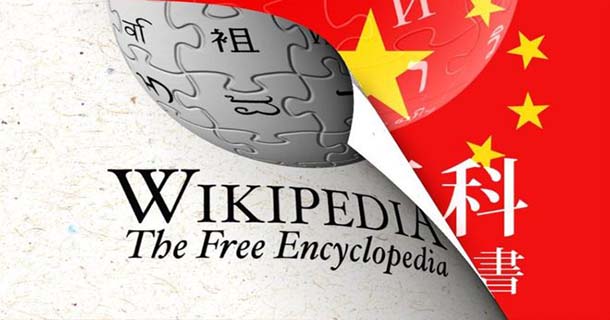
The Communist Party of China has long used these techniques to control national and international dialogue. Recent events, including the protests in Hong Kong, have led to an escalation of such efforts.
China has a complicated relationship with the internet. It constructed the “Great Firewall” to block “objectionable content”, bans social media platforms widely used in the Wes, and employs millions of analysts to monitor and control communications.
Increasingly, however, the CCP is using the internet for propaganda purposes.
BBC Click online published a report on October 5 about the “edit wars” on Wikipedia, a site that is blocked within China. Wikipedia’s content – arguably the largest source of knowledge ever compiled – is created and managed by users. Anyone with an internet browser can write or edit entries on the site. China, through organisations it controls, including the China International Publishing Group, has been changing the terminology of Wikipedia posts, particularly those it considers politically sensitive.
The BBC writer notes there were “65 changes in the space of a day” in articles about the ongoing protests in Hong Kong, switching definitions, eg, between “protestors” and “rioters”, as CCP editors battled with editors outside China.
“Were they protesters? Or rioters?” asks the BBC journalist.
Other examples include the English language depiction of Taiwan as “a state in East Asia” and China’s characterisation of it as a “province of the People’s Republic of China”; and the description of His Holiness the Dalai Lama as “a Tibetan refugee” in English, but a “Chinese exile” in Mandarin.
The BBC investigation found “almost 1,600 tendentious edits across 22 separate politically sensitive articles”.
Although the investigation was unable to prove that this was part of a systematic Chinese government effort, the authors noted concerted efforts by academics and the CCP to shift the dialogue to terms preferred by the Chinese.
Attempts to manipulate Wikipedia content are neither new nor the sole province of China. The “community of Wikipedians” has struggled with combating such “vandalism” since the platform’s inception. Regardless of whether China’s effort to change the nature of the dialogue is systematic, the battle over content on Wikipedia is likely to continue into the future.




 Print
Print Email
Email